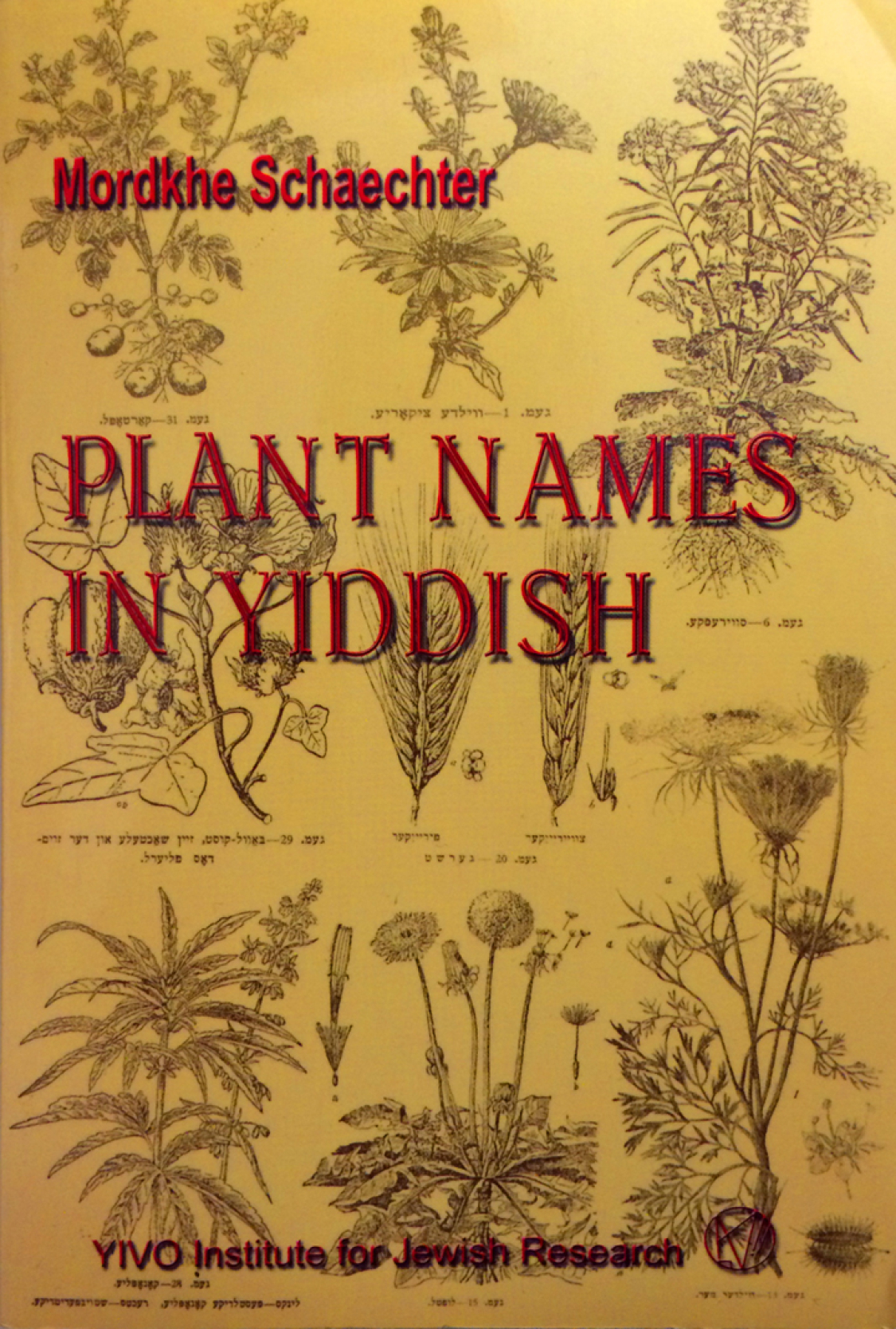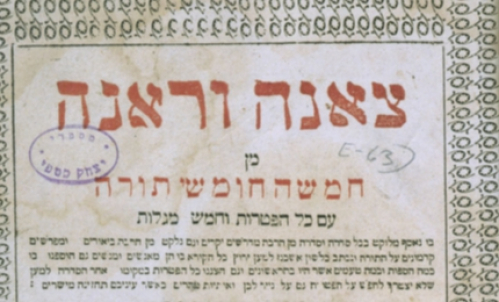Plant Names in Yiddish

|
By Dr. Mordkhe Schaechter Free download |
Yiddish linguist Dr. Mordkhe Schaechter confronts the stereotype that "there aren't any plant names in Yiddish” with the meticulously researched, long-awaited Plant Names in Yiddish, first published by YIVO in 2005. This groundbreaking Yiddish-English botanical dictionary draws on literary, scientific, linguistic and religious sources to document a wealth of Yiddish plant names—including many dialectal and regional variants. It is an essential reference work for Yiddish speakers and readers, scholars, researchers, culinary and nature enthusiasts, historians, scientists, and linguists.
Plant Names in Yiddish is a fascinating study not only in botany, but also in the development of the Yiddish language as reflected in botanical vocabulary. For example, Schaechter cites Yiddish terms for willow: sháyne-boym, noted in the writings of Mendele Moykher-Sforim and A. Golomb (from hoysháyne >hesháyne >sháyne - 'willow twigs used ritually on the holiday of Sukkoth'). He also notes that Yiddish terms for the halakhically appropriate vegetable species for a Passover seder have been documented since at least the 12th century, and that 'potato' is regionally known as búlbe, búlve, bílve, kartófl(ye), kartóplye (!), érdepl, ekhpl, ríblekh, barbúlyes, zhémikes, mandebérkes, bánderkes, krumpírn, etc. The Galician town of Sanok, at a crossroads of languages and cultures, boasts five different synonyms for 'potato’; such examples display the richness of the Yiddish language and its regional diversity.
Several important reference sections designed to assist the reader are incorporated into the book, including the English-Yiddish dictionary of botanical terms and plant parts, which provides many words not available in the standard Modern English-Yiddish Yiddish-English Dictionary by Uriel Weinreich. The Trilingual Latin-English-Yiddish Taxonomic Dictionary section helps those who may know a word in one language to find it in another. An extensive index (including a geographic index) makes searching easier, and there is a detailed source bibliography. There are many cross-referenced variations of plant words in Yiddish, a useful tool given the diversity in spelling, dialect, and region. A special section on orthographical and morphological variations is also included. The online edition now adds a Yiddish-Latin-English index.

